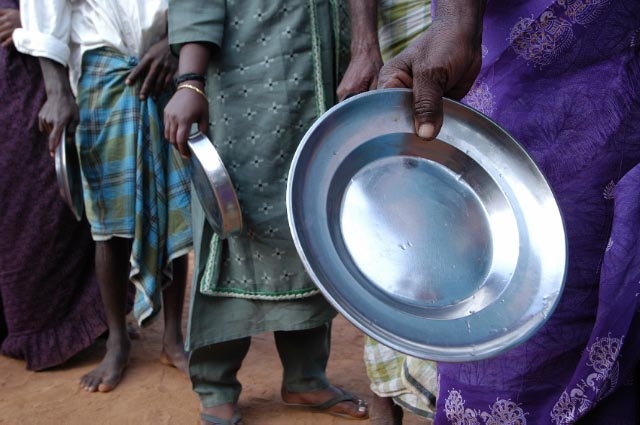A nutritionist, Mrs Chinyere Ekwueme with Primary Health Care Board in the Federal Capital Territory (FCT), Abuja, has advised parents to report cases of malnutrition to health centres immediately.
Ekwueme, Assistant State Nutrition Officer of the board gave the advice in an interview with the News Agency of Nigeria (NAN), directing parents in the FCT to report such cases to the board’s Community Management for Acute Malnutrition.
She observed that it was not common for parents with malnourished children to willfully avail their children for screening.
According to her, it is the responsibility of parents to search for, advise and report cases of malnourished children living with them.
“It is our duty to assist the government and nutrition health workers to reduce the index and indices of malnutrition in our country.
“If the government is scaling up investment on nutrition in the country and those suffering are not taking advantage of the resources, then it’s a waste of resources.
“Children from six months of age to five years of age suffering from malnutrition are increasing on a daily basis.
“This is because the parents of these children are unaware of the health centres and other provisions by the government; it is our responsibility to pull them out,’’ she said.
Ekwueme appealed to both the federal and state governments, health professionals and stakeholders to invest and reform the health system, especially in sustainable funding for nutrition in Nigeria.
She said that although the burden of malnutrition was more in the northern part of the country, it remained a general problem in the country that needed intervention.
She noted that hygiene, ignorance, illiteracy, rising level of poverty and failures of governance in the health sector, were all contributing factors to Severe Acute Malnutrition.
“Malnutrition in a nation has, over time, been attributed to war or crisis, but Nigeria is clearly not a war country but we are still faced with malnutrition.
“With the agricultural revolution of the present administration we shouldn’t even be talking about malnutrition in our country,’’ she said.
She called on Nigerians, especially the youth to utilise the social media to create awareness on the dangers of malnutrition.
The United Nations International Children’s Emergency Fund (UNICEF) notes that almost half of all deaths in children less than five years of age in Nigeria are attributable to malnutrition, resulting in the loss of more than three million young lives in a year.
It warns that under-nutrition puts children at greater risk of dying from common infections, increases the frequency and severity of such infections and delays recovery.
While it says that child nutrition in Nigeria has improved in recent years, it observes further that more than 11 million children less than the age of five years are stunted.
“Stunting is what happens to a child’s brain and body when they don’t get the right kind of food or nutrients in their first 1,000 days of life and it is irreversible.
“Nigeria has made progress in micronutrient deficiency control, but almost half of the children aged six months to 59 months do not receive vitamin A supplementation.
“Vitamin A deficiency can mean a child will be growing up with lower immunity, which can trigger frequent health problems and poor growth,’’ UNICEF warns.(NAN)

